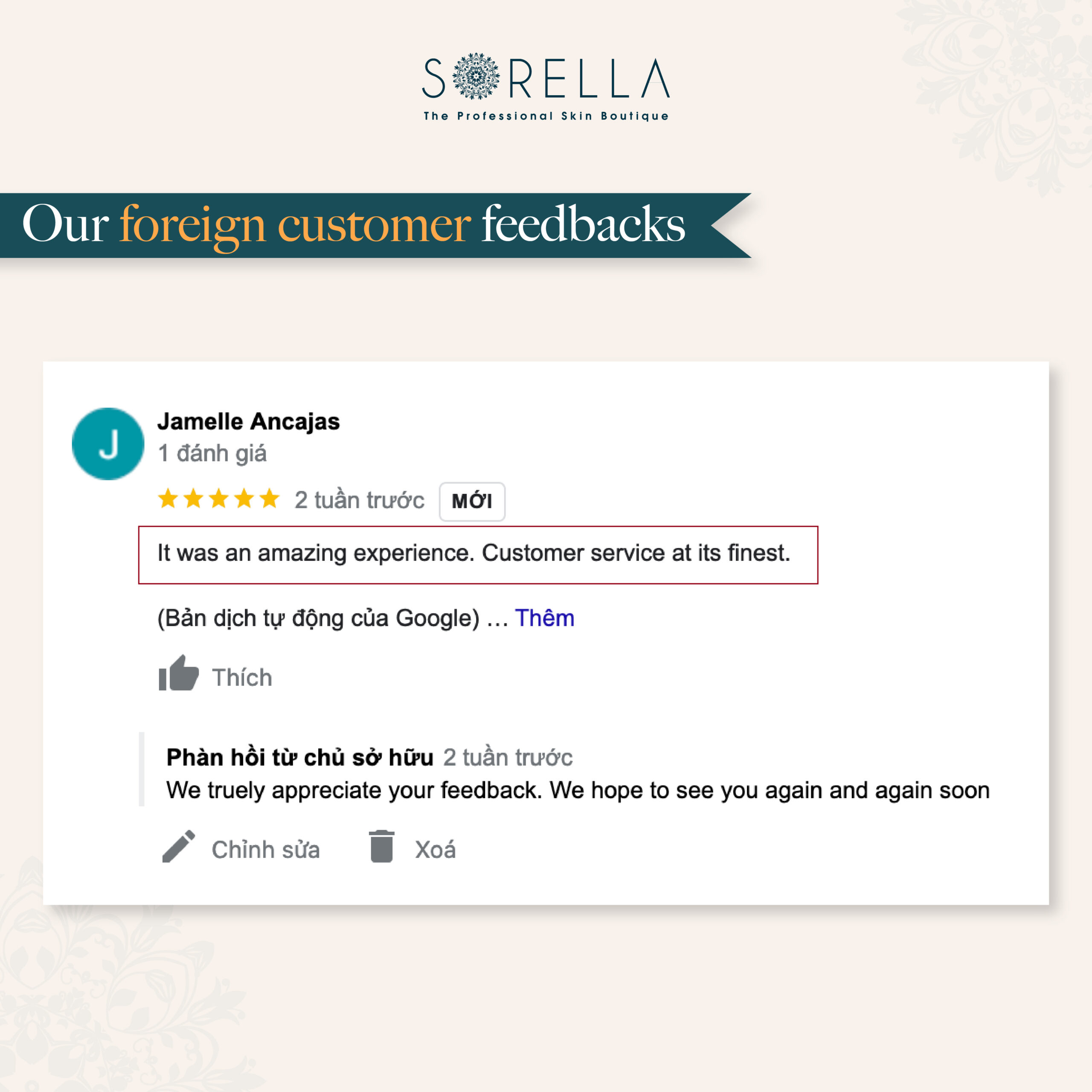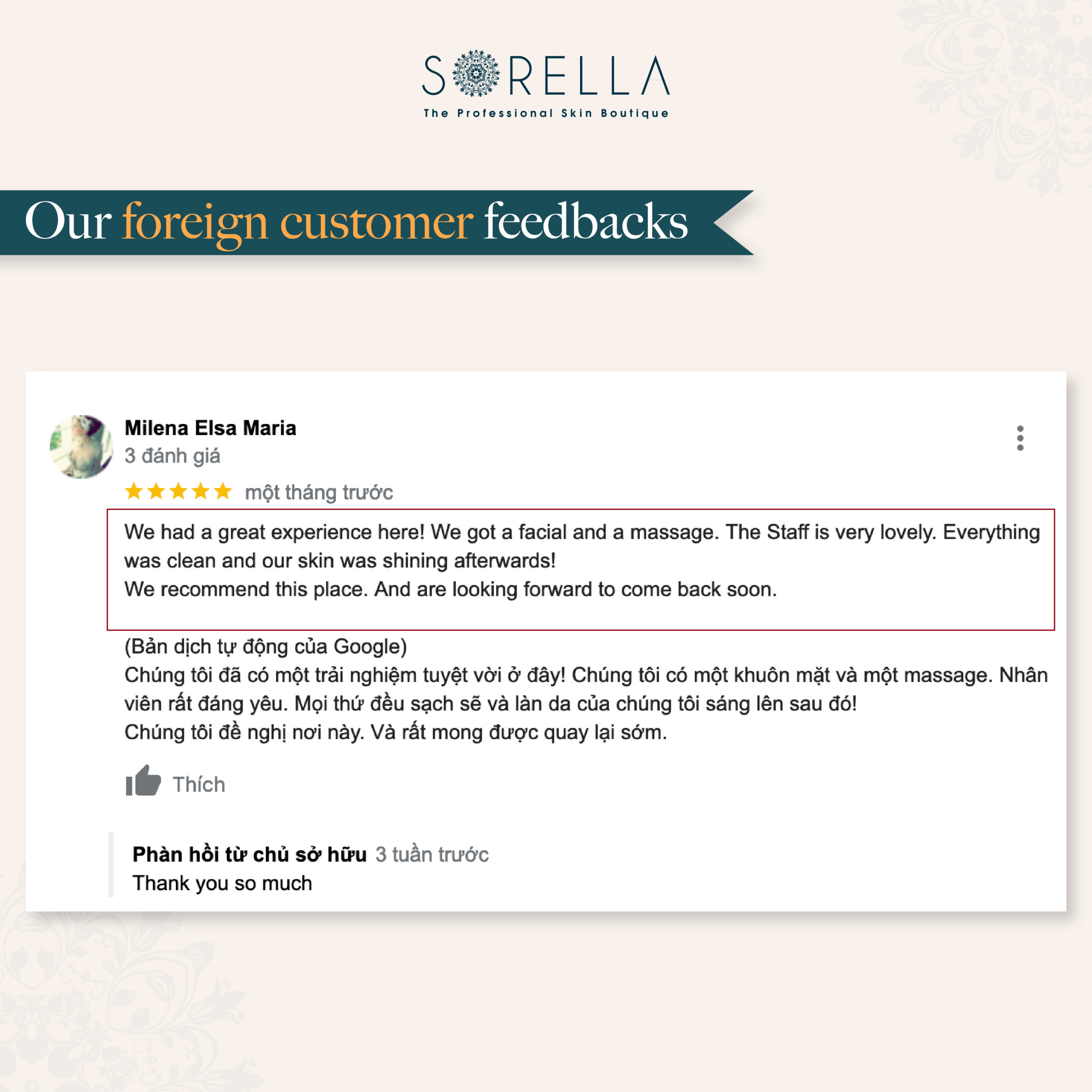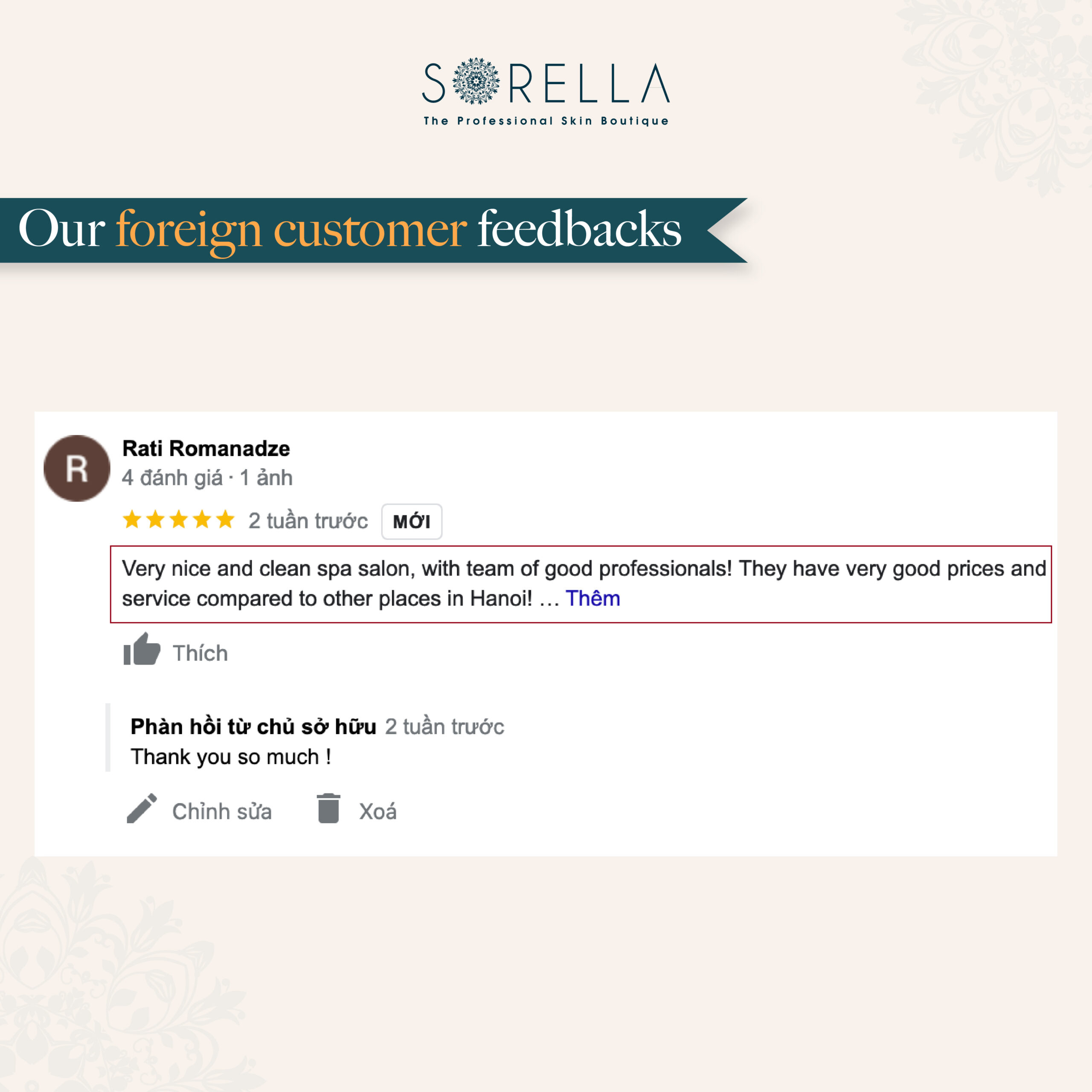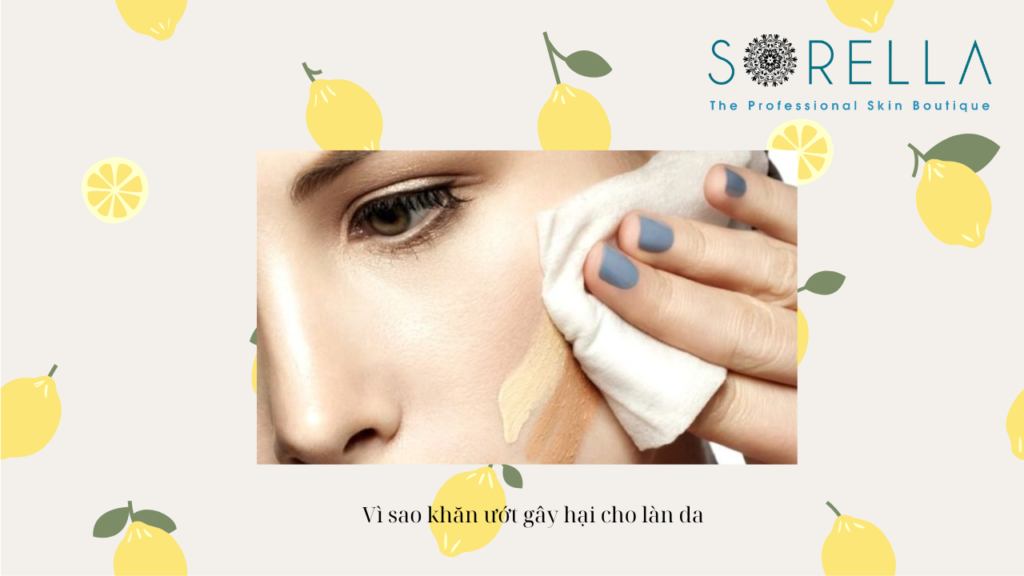Bí quyết làm đẹp
What is Tongue Piercing? 5+ Things to Consider Before Getting a Tongue Piercing
What is Tongue Piercing? Tongue piercing is often sought after for a sexy and unique look, but many experts argue that these accessories are not beneficial for your oral health. So, what are the real effects of getting a tongue piercing?

1. What is Tongue Piercing?
What is tongue piercing? Tongue piercing is a form of body decoration where a hole is made through the tongue and a piece of jewelry, typically a metal barbell with two beads, is inserted. The tongue piercing process usually begins with cleaning and sterilizing the tongue and piercing tools to ensure safety. A professional piercer uses a specialized needle to create a hole in the middle of the tongue and then inserts the jewelry.
Tongue piercing is not just a form of beauty but also a way to express individuality and personal style. However, this process requires careful attention to hygiene to avoid infections and other complications. After piercing, the individual must follow specific care instructions, such as rinsing the mouth with saline solution, avoiding spicy and hot foods and alcoholic beverages for the first few weeks, and maintaining thorough oral hygiene.
Some risks associated with tongue piercing include infection, swelling, bleeding, and pain. Additionally, the tongue jewelry can damage teeth and gums if not used carefully. Choosing a reputable piercing studio and following aftercare instructions are crucial to ensure a smooth healing process and minimize the risk of complications.
>> See more: 7+ Tips for Bikini Waxing that You Should Know
2. Should you get a Tongue Piercing?
Should you get a Tongue Piercing? Deciding whether to get a tongue piercing depends on various personal factors and an understanding of the process. First, consider your health and safety. If you have a weak immune system, are prone to infections, or have dental issues, tongue piercing may not be the best choice. Additionally, research piercing studios thoroughly to ensure they adhere to hygiene and safety standards.
Tongue piercing also requires a commitment to post-piercing care and oral hygiene. This can demand time and patience, as neglecting or improperly following care measures can lead to complications. You should also consider your pain tolerance, as the piercing process and healing period can be painful and uncomfortable.

Furthermore, think about your work and living environment. Some workplaces or social settings may not accept tongue piercings, which can affect your daily life. Tongue piercing can also impact speech and eating initially, which is important to consider if your job involves a lot of communication.
Ultimately, tongue piercing is a personal decision, and you should ask yourself about your purpose and reasons for getting it. If you want to express your personality and feel more confident, and you are well-prepared health-wise and mentally, then tongue piercing can be a rewarding experience. However, if you have any concerns about the risks or comfort, you may want to reconsider or explore other less risky forms of body decoration.
3. Harmful effects of Tongue Piercing
Tongue piercing can enhance personal appearance and express individuality, but it also comes with potential risks and harms that you need to consider carefully before deciding. Here are some possible harmful effects of tongue piercing:
- Infection: One of the most common risks of tongue piercing is infection. The tongue is a moist environment with many bacteria, so if not properly cared for, the piercing can become infected, causing swelling, pain, and pus.
- Swelling and pain: After piercing, the tongue can swell and be painful for several days to weeks. This can make eating and talking difficult. In some cases, excessive swelling can cause breathing difficulties and require urgent medical treatment.
- Damage to teeth and gums: Tongue jewelry can hit against teeth and gums, causing tooth erosion, cracks, or gum damage. This can lead to serious dental problems requiring expensive treatment.
- Difficulty with speech: Tongue piercing can affect your pronunciation, making it harder to speak. This is particularly important if your job or daily activities require a lot of communication.
- Bleeding: Bleeding can occur during the piercing process if the needle hits major blood vessels in the tongue. Although rare, it is something to be aware of and should be performed by experienced professionals.
- Allergic reactions: Some people may be allergic to the metal in the jewelry, causing itching, swelling, and inflammation. Choosing jewelry made from safe materials like titanium or stainless steel can reduce this risk.
- Scar tissue formation: The piercing may not heal properly or may heal incorrectly, leading to scar tissue or small bumps on the tongue. This can be uncomfortable and affect aesthetics.
While tongue piercing can be a fun way to express personal style, it’s crucial to understand the risks and potential harms to make an informed and safe decision. Ensure you choose a reputable studio and follow aftercare instructions to minimize the risk of complications.
>> See more: What is Nose Piercing? 5+ Things You Need to Know Before Piercing Your Nose
4. Things to consider when getting a Tongue Piercing
When deciding to get a tongue piercing, there are several important things to consider to ensure the process is safe and to minimize potential risks. Here are the necessary considerations:

- Choose a reputable studio: Select a piercing studio with a good reputation, proper licensing, and experience. Ensure that the tools used are sterile and that the procedure follows strict hygiene protocols.
- Research jewelry materials: Choose jewelry made from safe materials like titanium or stainless steel to avoid allergic reactions and reduce the risk of infection. Avoid cheap and unidentified materials.
- Prepare mentally and physically: Make sure you are in good health and have no medical conditions that could affect the healing process. If you have any concerns, consult a doctor before deciding to get pierced.
- Oral hygiene before and after piercing: Clean your mouth thoroughly by brushing your teeth and using an antibacterial mouthwash before piercing. After piercing, follow the piercer’s aftercare instructions, including rinsing with saline solution and avoiding irritating foods and drinks.
- Avoid stressful activities for the tongue: Avoid hard, spicy, and hot foods, as well as alcohol, for a few weeks after piercing. These can irritate the piercing and slow down the healing process.
- Monitor and care for the piercing: Check the piercing daily for signs of infection, such as swelling, redness, pain, or pus. If any of these symptoms occur, contact your piercer or a doctor immediately.
- Avoid playing with the jewelry: Refrain from touching, twisting, or pulling the tongue jewelry, especially during the initial healing phase. This can cause damage and infection.
- Maintain daily oral hygiene: Continue to practice good oral hygiene after the piercing has healed. Brush your teeth and use dental floss regularly to keep your mouth clean and healthy.
- Consult professionals: Before deciding on tongue piercing, consult with piercing professionals or doctors to understand the risks and preventive measures.
By adhering to these considerations, you can ensure that the tongue piercing process is safe and smooth, while minimizing the risk of complications and maintaining good oral health.
5. How does Tongue Piercing affect teeth and gums?
How does Tongue Piercing affect teeth and gums? A study in Switzerland concluded that people with tongue piercings are more likely to experience gum damage than those with lip piercings.
Senior researcher Dr. Clemens Walter, deputy director of the Dental Center at the University of Basel in Switzerland, noted that the research team observed several signs of bleeding, gum recession, and gingivitis in a total of 14 patients with tongue piercings. Dr. Walter stated, “The closer the teeth are to the piercing, the more they are affected.”
On the other hand, the gum quality of patients with lip piercings was not affected by the jewelry, according to a report presented at a recent European Federation of Periodontology meeting in Amsterdam.
A separate study from Belgium showed that two young women (aged 27 and 32) with tongue piercings suffered repeated gum damage due to the pressure of the metal against their teeth. The researchers reported that after 8 to 10 years, the women had their piercings removed following repeated gum bleeding and infections that led to abscesses, loose teeth, and teeth shifting from their normal positions.
Dr. Bernard Loir, a dentist in Brussels, noted, “For both patients, extensive and costly surgical treatments were required, and the lost tissue could not be fully regenerated.”

Many people experience tooth pain after getting a tongue piercing. Explaining this issue, Dr. Rodriguez, a pediatric dentist in Moses Lake, said, “The hard structure hitting the teeth and continuous tapping cause small cracks, which eventually become larger cracks, leading to structural damage or increased tooth sensitivity.”
Tongue piercing also raises the risk of infection, as the human mouth contains over 500 types of bacteria, fungi, and viruses.
Experts agree that if patients are concerned about their oral health, they should remove their tongue piercings as soon as possible. The best choice is always not to get pierced, but if you must, maintaining cleanliness is paramount. Piercing wearers should also limit vaping or smoking.
>> See more: 8 Methods of hair removal that are often utilized
6. How to care for teeth and gums for those with Tongue Piercings
After your tongue piercing has healed, you still need to maintain careful oral hygiene. You may not need to rinse with saline solution anymore, but remember to keep up with oral health to prevent any issues.
Ensure that any jewelry you choose for your tongue piercing is of good quality. Use jewelry made from stainless steel, titanium, or 14-karat gold. Poor-quality products can cause allergies or lead to infections.
Tongue piercings increase the long-term risk of gum injuries and tooth loss. Regular dental visits help you monitor changes and ensure that your piercing does not cause such damage.
Here are some oral care tips to keep in mind when you have a tongue piercing:
- Use dental floss: Flossing is crucial for cleaning between teeth and along the gum line where a toothbrush might not reach effectively. This helps prevent plaque buildup and reduces the risk of gum disease.
- Brush at least twice a day: Brushing your teeth at least twice a day, ideally after meals, helps remove food particles and bacteria that can accumulate around your tongue piercing and teeth. Consider using a soft-bristled toothbrush to avoid irritating your gums or the piercing.
- Consider a midday brush: In addition to brushing in the morning and evening, brushing after meals or snacks can further reduce bacterial buildup and maintain oral freshness.
- Choose a toothpaste with fluoride: Fluoride toothpaste helps strengthen enamel and protects against cavities, which is particularly important when your oral hygiene routine may be altered by a tongue piercing.
- Rinse with an antibacterial mouthwash: Using an antibacterial mouthwash can help reduce bacteria in your mouth, promoting oral health and keeping your piercing site clean.
- Avoid smoking and alcohol: Smoking and alcohol can irritate your mouth and delay healing. If possible, minimize or avoid these substances, especially during the healing process.
- Monitor your oral health: Keep an eye on any changes in your teeth, gums, or the area around your tongue piercing. If you notice unusual swelling, pain, or signs of infection (such as increased redness or discharge), consult your dentist or healthcare professional promptly.
- Regular dental check-ups: Schedule regular dental visits to monitor the health of your teeth and gums. Your dentist can assess any potential issues related to your tongue piercing and provide professional cleaning and care.
By maintaining good oral hygiene practices and being attentive to the health of your teeth and gums, you can minimize the potential risks associated with a tongue piercing and enjoy a healthy smile.
Tư vấn chuyên môn bài viết:
TS.BÁC SĨ NGUYỄN HỮU QUANG
- Sinh Năm 1970 Tuổi Con Gì ? Mệnh Gì ? Hợp Hướng Nào ?
- Nước muối sinh lý trong việc chăm sóc da mặt: 5+ Tác dụng thần kỳ của nước muối sinh lý
- Lạm dụng mỹ phẩm chứa corticoid, 6+ tiềm ẩn tác hại khôn lường
- 10 bài tập giúp mắt hết dại đơn giản, dễ thực hiện
- Sinh Năm 1941 Tuổi Con Gì ? Mệnh Gì ? Hợp Hướng Nào ?
Bài viết cùng chủ đề:
-
Nên lựa chọn Rejuran hay Karisma?
-
So sánh Karisma và Profhilo – 2 phương pháp trẻ hóa da tầng sâu đỉnh cao
-
Cách diệt chấy rận hiệu quả ngay tại nhà, 8 phương pháp tiêu diệt chấy rận hiệu quả
-
Có nên dùng khăn ướt để tẩy trang? Cẩn thận khi dùng khăn giấy ướt giúp chăm sóc làn da của bạn, 1 vài thành phần của giáy ướt có hại cho da


 中文 (中国)
中文 (中国) 한국어
한국어 English
English









